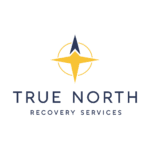You stopped using. You’re doing the work. So why does everything feel flat? Early recovery often comes with an unexpected challenge – nothing seems fun anymore. Activities you used to enjoy feel dull. Life feels gray. This isn’t a sign you’re doing recovery wrong. It’s your brain healing from what’s called a dopamine deficit.
What Is Dopamine and Why Does It Matter?
Dopamine is a neurotransmitter—a chemical messenger in your brain. Think of it as your brain’s reward system.
When you do something your brain considers good for survival, dopamine gets released. This happens when you:
- Eat food you enjoy
- Connect with people you care about
- Accomplish something meaningful
- Exercise or move your body
This chemical signal tells your brain: “That was good. Do it again.”
How Addiction Changes Your Brain’s Reward System
Substances flood your brain with dopamine—far more than natural activities ever could. Your brain adapts to these massive surges by:
Reducing dopamine production: Why make it naturally when substances provide so much?
Decreasing receptor sensitivity: Your brain becomes less responsive to normal dopamine levels.
Creating tolerance: You need more of the substance to feel the same effect.
Over time, your brain stops responding to everyday rewards. Food tastes bland. Conversations feel empty. Hobbies lose their appeal.
Why Everything Feels Boring in Early Recovery
When you stop using substances, everything can seem boring compared to the intense highs and lows of addiction. Your brain’s reward system is recalibrating.
This experience is called anhedonia—the inability to feel pleasure. It’s one of the most common challenges in early recovery.
What Anhedonia Feels Like
People describe it differently, but common experiences include:
- Feeling emotionally numb or flat
- Nothing sounds interesting
- Going through the motions without joy
- Questioning if sobriety is worth it
- Feeling disconnected from life
This isn’t permanent. Your brain is adjusting.
How Long Does Dopamine Take to Reset?
The timeline varies based on several factors, but here’s what research shows:
| Timeline | What Happens |
|---|---|
| First 7-10 days | Withdrawal symptoms peak, dopamine levels at their lowest |
| 30-90 days | Brain begins restoring dopamine function, noticeable mood improvements start |
| 6 months | Significant improvements in mood and cognitive function |
| 14 months | Brain returns to a more healthy baseline, dopamine transporter levels can return to nearly normal |
| 1-2 years | Continued brain repair, reduced cravings |
Many medical professionals believe that your brain’s dopamine production will return to pre-substance misuse levels over a period of 90 days. But complete healing takes longer.
The severity of your addiction, the substances used, and your support system all affect this timeline.
Common Questions About Dopamine in Recovery
Does low dopamine cause boredom?
Yes. Dopamine helps us find things interesting. When levels are low, activities that once brought pleasure feel meaningless.
Can dopamine receptors heal from addiction?
Absolutely. Dopamine receptors can heal from drug or alcohol addiction, but it takes time and comprehensive treatment. Your brain has remarkable healing capacity.
What are the symptoms of dopamine deficiency?
Common symptoms include:
- Persistent tiredness
- Difficulty concentrating
- Low motivation
- Mood swings or depression
- Physical restlessness
- Anxiety
How can I tell if my brain is healing?
You’ll notice gradual changes:
- Colors seem brighter
- Music sounds better
- Conversations feel more engaging
- Small accomplishments feel rewarding
- You laugh more easily
Natural Ways to Boost Dopamine During Recovery
You can support your brain’s healing process. These strategies help restore healthy dopamine function:
Move Your Body
Exercise naturally releases dopamine. You don’t need intense workouts.
Simple options:
- 10-minute walks
- Stretching
- Dancing in your kitchen
- Yoga
- Swimming
Any movement that elevates your heart rate helps.
Fix Your Sleep
Sleep is when your brain repairs itself. Create a consistent schedule:
- Go to bed at the same time every night
- Wake up at the same time every morning
- Aim for 7-9 hours
- Keep your bedroom dark and cool
Eat Foods That Support Dopamine Production
Certain foods contain amino acids that help make dopamine:
- Protein-rich foods: eggs, fish, chicken, beans
- Leafy greens and vegetables
- Bananas and avocados
- Nuts and seeds
- Dark chocolate (in moderation)
Avoid excessive sugar and processed foods. They can disrupt dopamine balance.
Create Small Daily Rewards
Your brain needs to relearn what feels good. Build in small treats:
- Morning coffee ritual
- Phone call with a friend
- 15 minutes of reading
- Evening walk
- Favorite music
Schedule these at specific times. Having something to look forward to matters.
Connect With Others
Human connection releases both oxytocin and dopamine. Face-to-face interaction works better than social media.
Options for connection:
- Support groups
- Therapy
- Coffee with a friend
- Family dinners
- Recovery meetings
Try Mindfulness Practices
Meditation and deep breathing calm your nervous system. They also help you notice small pleasures you might otherwise miss.
Start with 5 minutes a day.
Listen to Music
Music stimulates dopamine production. Create playlists of songs that make you feel something – even if it’s sadness at first. Feeling something is better than feeling nothing.
What NOT to Do When Everything Feels Boring
Don’t Replace One Addiction With Another
Your brain craves that dopamine rush. Be careful not to:
- Spend hours scrolling social media
- Binge-watch TV for entire days
- Gamble or shop compulsively
- Use food as your primary coping mechanism
These can become problematic too.
Don’t Isolate Yourself
Boredom gets worse when you’re alone with your thoughts. Stay connected even when you don’t feel like it.
Don’t Give Up Too Soon
Week by week, your brain heals. Your feelings return. The color comes back. The first few months are the hardest. Push through.
Why Boredom Is Dangerous in Recovery
Boredom isn’t just uncomfortable. For people in addiction recovery, boredom can be dangerous. It can lead to:
Romanticizing past use: Your brain may start remembering only the good parts of using.
Increased cravings: Boredom creates mental space for obsessive thoughts.
Higher relapse risk: When life feels empty, substances seem like the solution.
Relapse is always unsafe, but especially early in recovery. Your tolerance has dropped, making overdose more likely.
The Importance of Professional Support
Professional treatment helps manage this difficult phase:
Medication-assisted treatment: Certain medications can help stabilize brain chemistry during early recovery.
Therapy: Cognitive-behavioral therapy teaches you how to cope with boredom and low mood.
Structured programs: Intensive outpatient programs (IOPs) provide accountability and support when motivation is low.
Medical monitoring: Professionals can track your progress and adjust treatment as needed.
Understanding the “Dopamine Deficit State”
When we’re repeatedly exposed to pleasure-producing stimuli, our brains adjust. Eventually, we need more and more just to feel “normal,” or not in pain.
This is the dopamine deficit state. You’re not experiencing joy—you’re just avoiding pain. Recovery means breaking this cycle.
The withdrawal symptoms include:
- Anxiety
- Irritability
- Insomnia
- Low mood
- Intense cravings
These symptoms improve as your dopamine system heals.
When the Gray Feeling Lifts
Recovery isn’t linear. Some days will feel better than others.
But gradually, you’ll notice:
- A genuine laugh
- Interest in a hobby
- Looking forward to something
- Feeling proud of yourself
- Genuine connection with someone
These moments of real pleasure—not substance-induced euphoria—are signs your brain is healing.
That empty feeling isn’t who you are. It’s a sign you’re in the middle of a big shift.
Be Patient With Yourself
Your brain spent months or years adapting to substances. It needs time to adapt to life without them.
The boredom phase won’t last forever. Every day sober is another day your brain is healing.
You’re not boring. You’re not broken. You’re rebuilding.
Professional Help Makes a Difference
At True North Recovery Services, we understand the challenges of early recovery, including the dopamine deficit that makes everything feel flat. Our outpatient addiction treatment and mental health support programs in Denver help clients navigate this difficult phase with comprehensive, evidence-based care. We offer individualized treatment that addresses both substance use disorders and the underlying issues contributing to addiction. Our compassionate team provides the support, therapy, and recovery services you need to heal your brain and build a fulfilling life in sobriety. Recovery is possible, and you don’t have to do it alone.
If you’re struggling with boredom in early recovery, remember: This is temporary. Your brain is healing. The color will come back. And when it does, the joy you feel will be real – not chemically induced. That’s worth waiting for.


